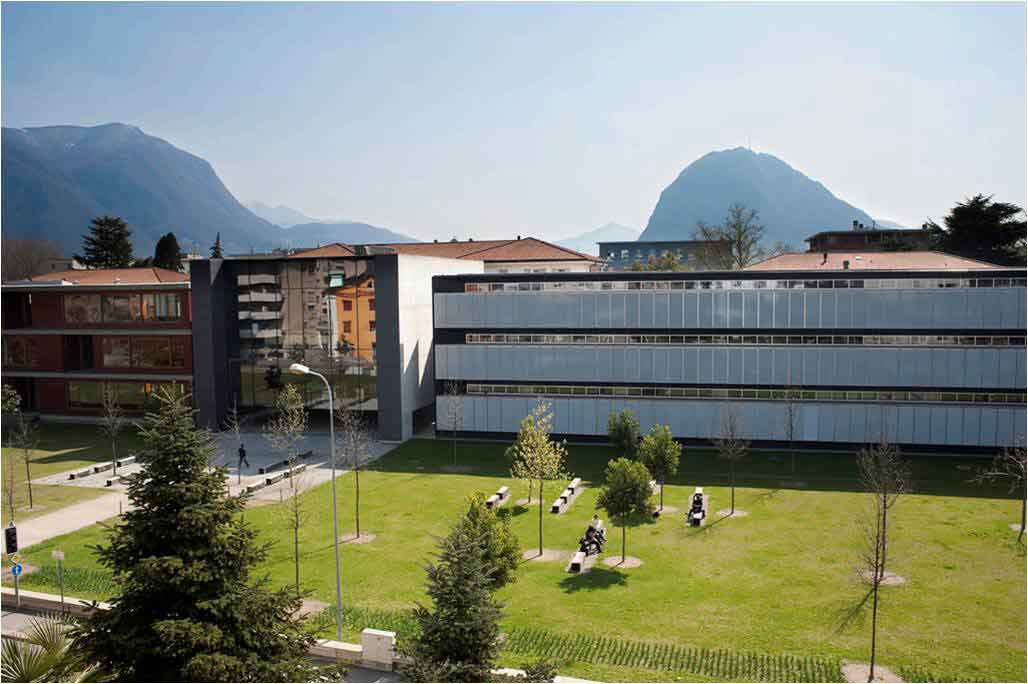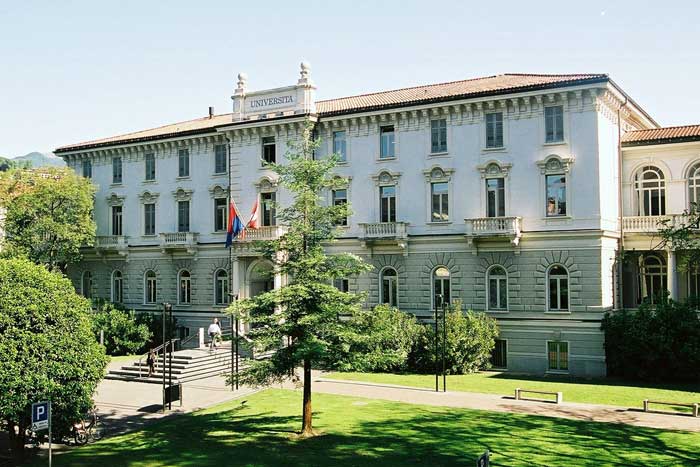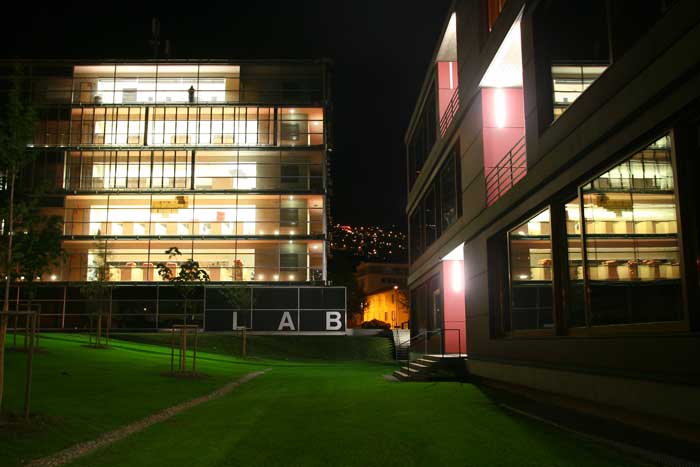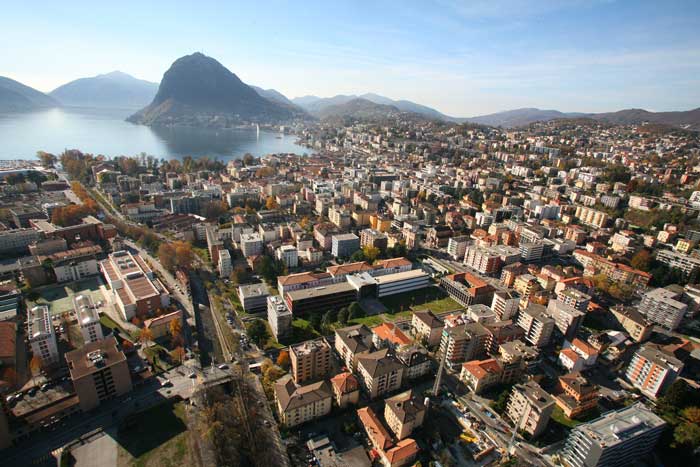



The Institute of Computational Science (ICS) of the Università della Svizzera italiana (USI - University of Lugano) and the Swiss National Supercomputing Centre (CSCS) have the pleasure to host the
8th International Workshop on Parallel Matrix Algorithms and Applications (PMAA14).
and theEuropean Trilinos User Meeting (EuroTUG14).
The workshosp aim to be a forum for an exchange of ideas, insights and experiences in different areas of parallel computing (Multicore, Manycores and GPU) and applications in which matrix algorithms are employed.
The PMAA14 workshop will bring together experts and researchers from diverse disciplines with a common interest in matrix computation. The purpose of the workshop is to discuss recent developments in various aspects of parallel matrix algorithms and to bring together mathematicians, computational scientists and engineers. The workshop will focus on
We invite you to submit scientific contributions in all fields of numerical analysis, scientific and industrial applications, software development, and high performance computing. From the submissions received, the Organizing Committee will select papers to be presented as oral contributions. We hope that this opportunity to present and discuss science will interest you, and we look forward to seeing you in beautiful Lugano!
Papers presented at the PMAA14 and submissions on closely related topics will be considered for publication in a special issue of Parallel Computing after a peer review process. They must be submitted electronically via Elsevier's online submission system at http://ees.elsevier.com/parco/.
| Submission of MS proposals by e-mail to pmaa14@usi.ch | |
| Submission of abstracts for MS talks and contributed talks | |
| April 20, 2014 | Acceptance notification |
| May 10, 2014 | End of early registration |
| June 21, 2014 | Online registration closing |
| October 15, 2014 | Submission of proceedings article in Parallel Computing Journal |
| Academic Participants | Non-Academic Participants | |
|---|---|---|
| Early registration (before May 10, 2014) | CHF 490 | CHF 590 |
| Late registration | CHF 590 | CHF 650 |
Peter Arbenz (Switzerland), Laura Grigori (France), Rolf Krause (Switzerland), Ahmed Sameh (USA), and Olaf Schenk (Switzerland).
Emmanuel Agullo (France), Pasqua D'Ambra (Italy), Haim Avron (USA), Achim Basermann (Germany), Michael Bader (Germany), Costas Bekas (Switzerland), Paolo Bientinesi (Germany), Radim Blaheta (Czech Republic), Eric Boman (USA), Matthias Bollhöfer (Germany), Matthias Bolten (Germany), Eric Boman (USA), Xiao-Chuan Cai (USA), Edmond Chow (USA), Zlatko Drmac (Croatia), Nahid Emad (France), Efstratios Gallopoulos (Greece), Dominik Goeddeke (Germany), Laura Grigori (France), Erricos J. Kontoghiorghes (Cyprus), Luc Giraud (France), Dan Gordon (Israel), Inge Gutheil (Germany), Thomas Huckle (Germany), Fumihiko Ino (Japan), Matthew Knepley (USA), Sabine Le Borne (Germany), Svetozar Margenov (Bulgaria), Ulrike Meier-Yang (USA), Maya Neytcheva (Sweden), Gabriel Oksa (Slovakia), Cosmin Petra (USA), Serg Petiton (France), J. Ramanujam (USA), Jean Roman (France), Jose E. Roman (Spain), Tetsuya Sakurai (Japan), Daniel Szyld (USA), Denis Trystram (France), Miroslav Tuma (Czech Republic), Bora Uçar (France), Paulo Vasconcelos (Portugal), Marian Vajtersic (Austria), Richard Vuduc (USA), Roman Wyrzykowski (Poland), Weichung Wang (Taiwan).
Peter Arbenz, Rolf Krause, Olaf Schenk, Will Sawyer.
Contact: pmaa14@usi.ch
Dmitry Mikushin, Drosos Kourounis, Max Rietmann, Olaf Schenk.
Advanced mathematical modeling and high performance methods in numerical simulations open new perspectives for science, research and economy. Exploiting the capabilities of modern supercomputers, increasingly complex problems can be tackled – covering a very broad spectrum of disciplines, from exact and natural sciences to economics and social, bio-medical, environmental, materials, and engineering sciences. The ICS provides a unique research environment, where strong competences in mathematical modeling, numerical simulation and computer science come together in an open and application oriented atmosphere.
ICS hosts seven research groups which focus on advanced computing in computational science, high-performance methods for numerical simulation in science, medicine and engineering, computational time series analysis, computational shape analysis, multi-scale and multi-physics models in computational biology, computational modeling of cardiac electrophysiology, and the simulation of biological and physical systems.
ICS also provides a highest quality education in computational science. A well balanced curriculum combines the most relevant topics of applied mathematics, informatics, and high performance computing with key elements and concepts from different application areas. Special emphasis is on the understanding of the mathematical and methodological concepts as a universal bridge between the real world processes, the numerical simulation and its realization.



Lying at the heart of Europe, Switzerland is at the crossroads of major economic, financial and touristic routes, flowing to and from its bordering nations: Italy, France, Germany and Austria. It is reachable from most European cities with less than 2 hours of flight.
http://www.myswitzerland.com/Ticino is the Swiss region south of the Alps which connects Northern and Southern Europe. It includes Canton Ticino and four valleys of Canton Grigioni (Mesolcina, Calanca, Bregaglia and Poschiavo) and its language is Italian. Very active in the tourism sector, Ticino plays an important role as a bridge between Middle-European and Mediterranean cultures. With an average of over 2300 hours per year of sunny weather, Ticino benefits from mild winters and Mediterranean summers. It has the richest vegetation in Switzerland and it is famous for its contrasts: the imposing peaks, eternal snows and glaciers of San Gottardo are only a few kilometres away from charming little lakeside towns. Additionally, Ticino offers a rich selection of cultural events, and tasty local and international cuisine.
http://www.ticino.ch/Lugano (56,000 inhabitants) is the largest city in the Canton and the third financial centre in Switzerland. Other important towns in the region are Bellinzona, which is the region capital and it is also well known for its three medieval castles which are Unesco protected cultural sites, Locarno, Mendrisio and Chiasso. Lugano is located in the south of Switzerland and lies on Lake Lugano. The town's thriving economy provides an estimated 38,000 jobs, over a third of which are occupied by cross-border commuters. Business, tourism and finance constitute the backbone of the local economy. The city is Switzerland's third largest banking centre after Zurich and Geneva. Lugano is one of the most popular touristic destinations in Switzerland. Both Lake Lugano and the surrounding mountains provide a wide variety of outdoor activities. Lugano is also home to a number of historic buildings and museums.
http://www.lugano-tourism.ch/
The European Trilinos User's Group Meeting (EuroTUG14) is a satellite workshop of PMAA14. EuroTUG brings together Trilinos users, clients and developers from all over Europe and provides an outlook in current trends in development of Trilinos as well as to current trends in HPC in general.
Participants are encouraged to send their center of interests by email to the organizer Gilles Fourestey to define focus points and present their individual research/work that involves utilization or development of packages from Trilinos.
This year meeting will take place at the Swiss National Supercomputing Centre (CSCS) in Lugano on Monday, June 30 and Tuesday, July 1.
Please note that attending the PMAA14 workshop will allow to attend the EuroTUG14 free of charge.
The Parallel Computing (Elsevier) will publish a Special Issue devoted to PMAA 2014. Papers submitted to the special issue should have a strong parallel computing and numerical linear algebra component. The topics to be covered in the issue include, but are not limited to:
Manuscripts will undergo the standard Parallel Computing peer-reviewing process. They must be submitted electronically via Elsevier's online submission system at URL
Authors are to follow the instructions in the Guide for Authors. In particular, when choosing the “Article Type” during the submission process, make sure you select the type “Special issue: PMAA 2014 - Lugano.”
The guest editors of this special issue are: Peter Arbenz, Rolf Krause, Laura Grigori and Olaf Schenk. For any questions, please contact Peter Arbenz.
| October 15, 2014 | Deadline for submissions of full papers |
| December 30, 2014 | Reviews due |
| February 28, 2015 | Deadline for re-submission of revised papers |